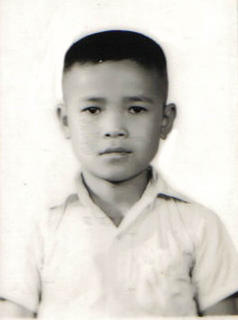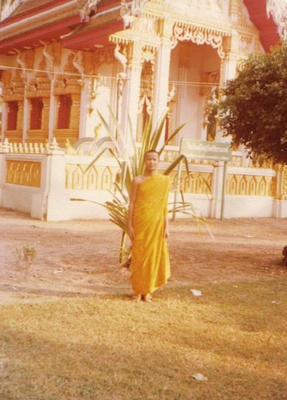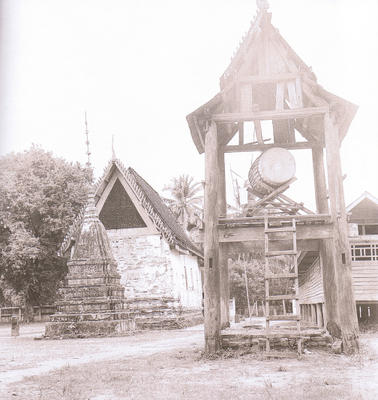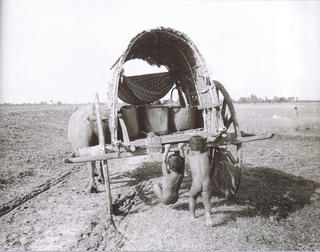

The ordination
When I turned fourteen my mother my relatives took me to Wat Srisumongala, the main temple in Sakon Nakorn province, which is about 9 km from my village. The ordination ceremony was quite simple and we didn’t waste money. Ordination for monks and novices differs. The ceremony for novices simply requires acceptance of ten precepts, however a monk must accept 227 rules with many chanting in the ceremony. During my time at the temple, in preparation for my ordination I practiced meditation, chanted, and repeated after the preceptor. At the time of my ordination, I requested ten precepts and the preceptor gave them to me. That was the entire ceremony, which wasn’t too long or complicated, and I was accepted as a novice.
My Life as a novice
In Thailand there are at least one to three temples in every village. My family took me to the monastery in my hometown. There were about five other novices living there as well as two or three monks, and our own abbot who was the chief monk of the temple. The abbot was a very kind, calm man. He taught me how to bow down three times and to chant in the morning and evening. I learned these things and also how to perform Buddhist ceremonies.
At about 5:30 a.m. we would hit the gong and rise. In Thailand monks receive food from villagers on their alms round. At 6:00 a.m. we would walk into the village and received food (rice, fruit, etc.) and return to the temple. From 7:30-8:00 a.m. we ate breakfast, when devoted volunteers would come to serve our breakfast. After breakfast we studied the Buddha’s teaching and sutras from 8:30-10:30 a.m. We studied the Dhamma, forms of discipline, rules and regulations for monks and novices, and the life of the Buddha.
I was truly inspired and impressed when I read about the life of the Buddha. The Buddha’s life was one of sacrifice and devotion, having once lived in a palace in a life of luxury, leaving it behind to search for truth. For six years he stayed in the forest and meditated until the moment he reached enlightenment. I was very impressed. I thought if I had the opportunity I would study more and practice more. I wanted to learn even more of Buddha’s life.
Back to Lay Life
My days as a novice were coming to an end. When my mother asked the Buddha for help she promised to ordain me for only seven days, afterwards disrobing to become a layperson again. My ordination was also fulfilling the Thai custom of male members of a family ordaining as novices at least once in their lives. My seven days in the monastery were drawing to a close.
My novice friends at the temple pleaded with me to stay longer. In those seven days I had learned a lot about meditation and the life of the Buddha, and I wanted to learn even more. When I returned home, I asked my mother if I could stay longer, and she said, “Okay, up to you, if you can stay longer I would be very happy”.
From that moment on I studied every sutra and every aspect of each function of Buddhist ceremonies in the temple. I stayed during the Phansa, or rains retreat which lasts for three months. (This year, 2001, it takes place from July to October.) Phansa is a time for serious and intense practice in the monastery, when novices and monks study together and practice meditation all day. Experiencing that first Phansa made my mind very calm, cool, and clean, and I really liked that state of mind.








